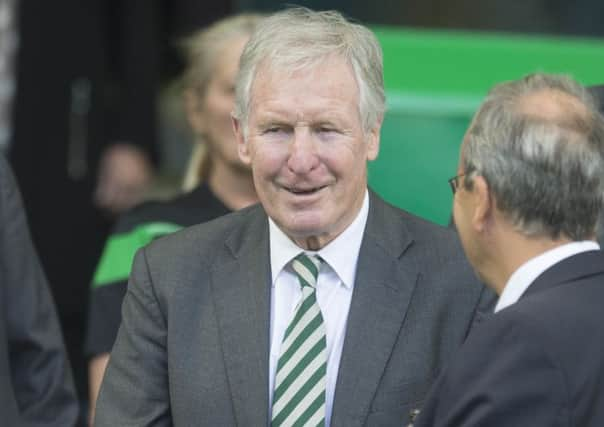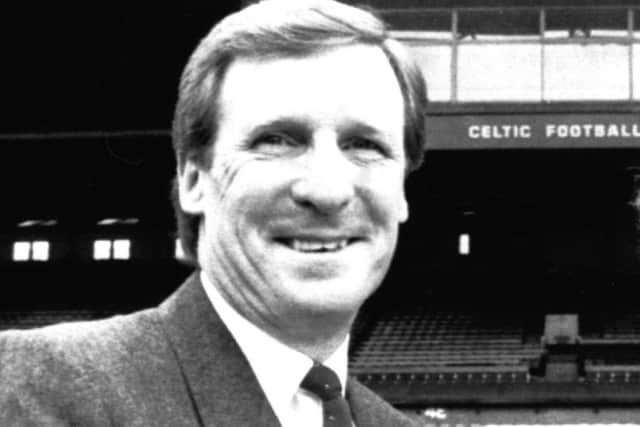Billy McNeill, footballer


The statue of him outside Celtic Park commemorates one of the most historic moments in British football, when McNeill’s “Lisbon Lions” became the first home team to life the trophy, a year before Manchester United.
It is a point of irony that when he strode up the steps at the Lisbon’s Estadio Nacional to claim his moment in history, he did so alone.
Advertisement
Hide AdAdvertisement
Hide AdThe first Briton to get his hands on the cup was denied the opportunity to share it with the men who had helped him win it.


As the West German referee Kurt Tschenscher blew the final whistle, the jubilant Hoops supporters spilled onto the pitch to celebrate being crowned kings of the continent.
Some of McNeill’s team-mates – all of them born within 30 miles of Glasgow – were stripped of their jerseys. The invasion was good mannered but the nervous Portuguese authorities feared the worst and decided on safety grounds that only McNeill would be allowed to take to the podium and lift the “trophy with big ears”, as he liked to call it. The others remained in the dressing room and were conspicuous by their absence from the picture taken immediately afterwards.
McNeill admitted that strange twist of events never sat easy with him.
Advertisement
Hide AdAdvertisement
Hide Ad“I remember thinking, ‘Where are my team-mates? Why am I the only one here?’” he wrote in his autobiography.
Leadership came easy to him. Born in Bellshill, North Lanarkshire, on March 2, 1940, he was the son of a Black Watch solider and the military influence on his upbringing made him comfortable dishing out orders.
He signed for Celtic from Blantyre Victoria in August 1957 and a year later made his debut in a League Cup tie against Clyde at Parkhead.
But his first seven years at the club gave little indication of the spoils that were set to flood down upon the Glasgow side as he finished campaign after campaign empty handed.
Advertisement
Hide AdAdvertisement
Hide AdThings got so bad he almost left to join Bill Nicholson’s Tottenham in 1965, just two years after being appointed captain.
He was persuaded to stay only by a change in the club’s management. It transpired to be a wise decision as Jock Stein set Celtic on the path to greatness.
“Soon after big Jock arrived - the rest, as they say, is history,” he said.
It was McNeill who ended the club’s long trophy drought, which had stretched back to 1957, when he powered home the winning header in the final of the 1965 Scottish Cup.
Advertisement
Hide AdAdvertisement
Hide AdMcNeill was the manager’s most-trusted on-field general. While the rest of his side were focused on pouring forward, the captain was a defender first and foremost, with a fearsome approach to jousts both on the ground and in the air.
But it was his ability to cajole and organise his team-mates which was of most value to Stein.
Those attributes were never more required than in the 1967 European Cup final when Celtic fell behind to Sandro Mazzola’s sixth-minute penalty.
Inter and their famed Catenaccio rear-guard were perfectly placed to choke the life out of the game but McNeill and Celtic refused to panic, hitting back through Tommy Gemmell and Stevie Chalmers to seal the most glorious of victories.
Advertisement
Hide AdAdvertisement
Hide AdIt was the pinnacle of McNeill’s playing career but there were other close calls.
Feyenoord denied the defender a second European Cup in 1970 as the Scottish champions fell to a 2-1 defeat in the San Siro.
In all, McNeill - capped 29 times for Scotland - ended his playing career with nine League Championships, seven Scottish Cups, six League Cups and the most prized medal of all from his 1967 triumph.
He played every minute of the 790 appearances he made for the club. After hanging up his boots aged 35, he was lured back to Celtic Park three years later as he replaced Stein as boss.
Advertisement
Hide AdAdvertisement
Hide AdA brief stint in charge at Clyde and Aberdeen was all the apprenticeship he needed for management and he made a successful return to Glasgow’s east end, winning three League Championships, a Scottish Cup and League Cup.
Stints at Manchester City and Aston Villa were not so fruitful but he returned to Parkhead in time for Celtic’s centenary year in 1987/88, ensuring the celebrations ended with a bang as the Hoops claimed a league and cup double.
He was awarded an MBE in 1976 but it remains a mystery to many Celtic fans that their celebrated skipper was never honoured with a knighthood.
McNeill is survived by his wife of 55 years Liz, their children Susan, Paula, twins Libby and Carol, and Martyn.